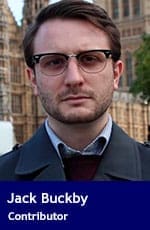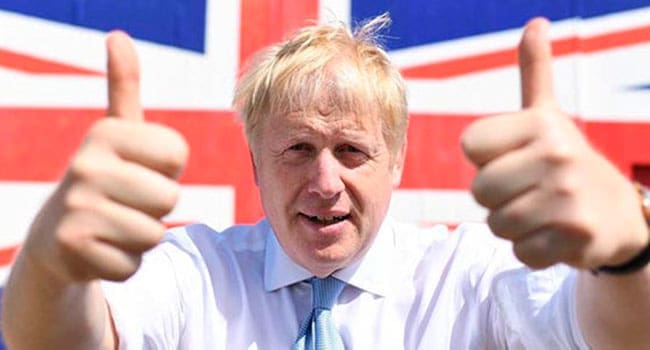 If there is one thing the COVID-19 pandemic has taught us – and it has taught us many things – it’s that partisan politics has completely taken hold of public discourse and, in effect, banned common sense.
If there is one thing the COVID-19 pandemic has taught us – and it has taught us many things – it’s that partisan politics has completely taken hold of public discourse and, in effect, banned common sense.
This truth was made most clear in early May when United Kingdom Prime Minister Boris Johnson announced the relaxation of some of the nation’s lockdown restrictions, telling the public to use their “British common sense” and to feel free to exercise outdoors as much as they liked.
It sparked a backlash that included comedians mocking his lack of clarity, opposition asking why the prime minister couldn’t be more specific, and the news media peddling the idea that nobody understood what Johnson had said. To the Twittersphere, it represented mass confusion and a lack of clarity.
But the moment a journalist asked a non-political working-class man on the street about it, the deception was exposed.
Ryan Price, a plumber from Surrey, standing in front of his van, told the press that the government advice was “not hard to understand.” A subsequent poll by the Daily Express found that some 66 percent of readers weren’t confused, either.
But the Labour Party, with its brand-new leader Sir Keir Starmer, had something to prove and until then, very little ammunition to use against the prime minister. This was their chance to shine. So instead of engaging constructively with the government, they chose to take cheap political shots because Johnson dared to encourage people to think for themselves.
It was a sign that nothing had really changed and that even during a time of national crisis we can expect politicians, or at least far-left politicians, to use this situation to their advantage in any way they can – and to hell with public discourse and safety.
We saw it when the World Health Organization told the world at the beginning of this pandemic that there was no need to wear masks. In early 2020, the established narrative was that wearing a mask can’t stop you getting the virus as it can travel through fabric, and that it may even increase your chances of contracting the disease if the infected fabric remains in contact with your face.
What we didn’t talk about, however, was how wearing a fabric mask reduces the number of aerosolized droplets of saliva that leave our mouths when we speak. When everyone wears a mask, infected people spread the virus less.
The WHO knew this because every doctor and scientist knows this, too. It’s no coincidence that now that Canadian, American and British healthcare workers have sufficient PPE, we’re suddenly told to start wearing masks.
The WHO and our political leaders didn’t want a run on masks, and so instead of levelling with the public and explaining that medical professionals need the medical-grade masks first, and that everyone else should make masks out of old T-shirts and fabric at home, they chose to lie.
To be fair, much of the blame here lies with the WHO and not necessarily with the politicians. Even Prime Minister Justin Trudeau demonstrated some common sense, albeit in an inelegant way, when he described how wearing a mask can stop you speaking “moistly” at people.
But this was around the same time that the WHO and the U.S. Centers for Disease Control and Prevention told the public that masks were unnecessary and the best way to prevent the spread of the virus was to stay at home and wash our hands.
Our leaders, in taking this obviously flawed advice, misjudged the public mood. For the most part, Canadian, American and British politicians didn’t trust the people to use their common sense and expected that the general public would rush to take the masks desperately needed by healthcare workers.
Common sense has not prevailed throughout this pandemic and only now as we come towards the end of the first wave of the disease are we beginning to learn.
We’ve learned that depending on foreign economies, which are in many ways hostile to the West, for key medical supplies is a bad idea.
We’ve learned that the WHO doesn’t trust the judgment of regular people and would rather lie than level with them.
We’ve also learned a lot about our politicians. Some were all too willing to ignore common sense and blindly trust China and the WHO.
Some, like Johnson, were willing to put some trust in the public – but in doing so, it exposed how partisan politics literally endangers the freedom and possibly even health of the public. When a prime minister can’t place trust and responsibility in the people without being accused of being unclear, we know that common sense has effectively been banned in modern politics.
We could learn from this, but it’s unlikely that much of the political class is willing to. Placing trust in the public has become an alien idea. Our governments have become too large and self-serving.
The very idea that the people could be trusted to help reduce the spread of this virus by making our own masks and preserving supply for medical professionals is alien to the politicians because they already expect so little of us.
The political class has banned common sense, it’s putting our health in danger, and I expect it will happen all over again when the next pandemic comes.
Jack Buckby is a research associate with Frontier Centre for Public Policy.
The views, opinions and positions expressed by columnists and contributors are the author’s alone. They do not inherently or expressly reflect the views, opinions and/or positions of our publication.


